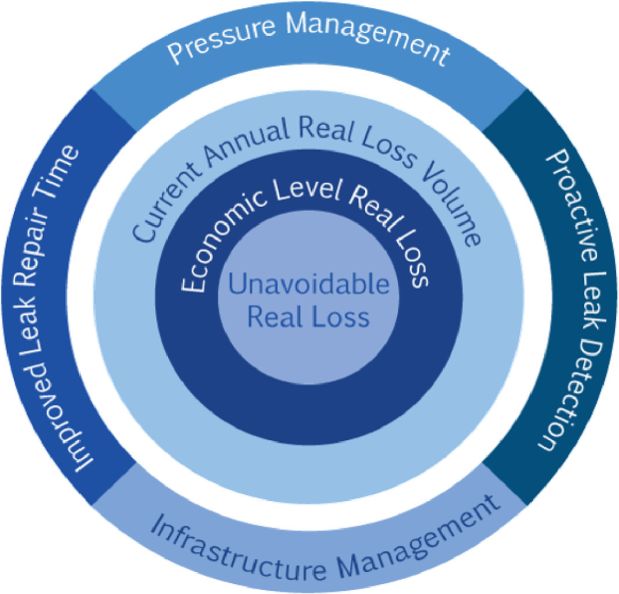
Fix the Leaks
How much water are we losing from leaks?
As we prepare to endure another year of water restrictions, and risk of forest fire, that we may not be able to fight without water bombers, how much of our precious resource is washing out to shore from Non-Revenue Water Loss? This is water lost through the distribution system before it reaches a paying customer.
The Canadian Water and Wastewater Association (CWWA) completed a study in 1997 to estimate the investment needs in water and wastewater infrastructure over the period 1997-2012. This study indicated that there were more than 112,000 kilometres of water mains in Canada with an estimated replacement cost of $34 billion. In addition, this study estimated that $12.5 billion would have to be invested over this 15-year period to replace existing (deteriorated) water mains and to construct new mains to service the projected growth.
In October 2000, Dr. Osama Hunaidi of the National Research Council of Canada released the document Detecting Leaks in Water-Distribution Pipes. Essentially it was recommended that regular Water Audits, followed by Leak-Detection Surveys be completed to reduce what was up to 50% loss down to the 20 - 30% that was typical of the day. Today’s standards suggest that the loss level can be easily maintained in the 10 - 15% range of acceptability.
One of the other concerns that have come to light, is that certain leaks, where water pools around the leak, can actually be sucked back in through the crack when the pressure changes in the pipe. The risk identified here, is that contaminants can be sucked in along with the water. Some will flow through to end users, while others will attach to the walls of the pipes. That creates an unacceptable health risk in the water and pipes that carry our drinking water.
In 2005, the City of Ottawa lost more than 26 billion litres of drinking water, which was really not much different from numerous other cities at that time. With aggressive leak detection and repair, that loss was cut down to less than 16 billion litres by 2009, which represents about 15% of the water flowing through the city’s mains every year. Even though that was considered an acceptable amount of loss at that time, I can’t imagine that volume of potable water being lost from the usage of people and business.
In April 2003 the Federation of Canadian Municipalities and National Research Council released the document titled Deterioration and Inspection of Water Distribution Systems. This document outlines the best practice for inspecting water distribution systems for signs of deterioration to minimize health and safety concerns, while ensuring that a municipality can provide an adequate supply of safe water in a reliable and sustainable manner.
I moved here in 1991, and sat on the West Howe Sound Advisory Planning Commission for 6 years, the Keats Island Water Committee for 2 years, and was the West Howe Sound Alternate Director for about 3 years. I don’t remember any conversation along the lines of what I have shown here. Yes, we dealt with leaks as they appeared, but I don’t remember anyone looking for leaks, as we had lots of water. Now we don’t!
Leakage Control Strategy

When they talk about Non-Revenue Water Loss, they are only talking about money the municipality didn’t receive. That’s nowhere near the total cost of that loss of water! What about all of the crops that were lost? Don’t they count? I bet they do to the people that lost them. What about livestock? They can’t live a healthy life without water, anymore than we humans can.
Water is a regional issue, and should be managed on a regional basis. I remember the arsenic water of Pender Harbour from the 1990s. As a water locked peninsula, we need to start thinking as one group, and planning for the best approach to deal with whatever any of our members need. Ask your elected representative to start the conversation about stopping the leaks. Don’t let this dry out!
- Created on .
- Hits: 2128
